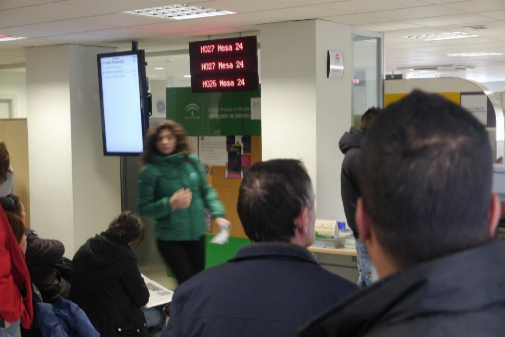The Fourth Section of the Contentious Chamber of the Supreme Court has endorsed in a ruling published on December 4 that the Public Administration can lower the salary to those officials who have low productivity . This follows from the sentence passed by Cinco Días in which the Supreme Court considers it appropriate to lower the salary to an official through a cut in the complement of productivity for having lowered her work performance.
Career officer of the External Audit and Control Corps , with destination in the Second Department of the Audit Section of the Court of Auditors , the productivity supplement she received suffered a severe discount, of the 1,313 euros she charged at 737 euros , due after 15 days of leave that was in a semester, plus an additional discount of 414 euros in penalty.
The official demanded that the Supreme Court declare that the decision issued by the Court of Auditors in which the appeal filed by the Court against the reduction of said complement was not in accordance with law. The official demanded that 214.35 euros be paid back plus late payment interest .
However, the High Court has considered that "it is clear from the regulation that what is assigned in a given period of time does not mean the same assignment in another, but that it will be carried out according to the corresponding assessments", which means that the complement of productivity It does not consolidate . In addition, it considers that the Public Administration has "a margin of discretion" to reduce this complement if the worker's productivity decreases, as she considers.
According to the direct superior of the official, she did not answer telephone calls, did not follow the instructions
and it carried out a smaller volume of work, "basing all of this in e-mails not provided by its direct superior (currently dismissed in said position), and in the computer application used in the control activities, information also not provided".
The official appealed by assuring that they were "accusations without crediting credibility" , but the Supreme Court has dismissed the appeal citing the General Budget State Laws for 1994 and 2016 , which establish that the productivity supplement "will pay the special return, activity and extraordinary dedication and the interest or initiative with which jobs are performed ".
Art. 25.1. E of Law 21/1992, of December 29, on General State Budgets for the year 1994 established the productivity supplement in the following terms: "The productivity supplement, which will reward the special performance, activity and extraordinary dedication, the interest or initiative with which the jobs are carried out, and their contribution to the achievement of the results or objectives assigned to the corresponding program. Each ministerial Department shall determine the criteria for distribution and setting of the individual amounts of the productivity supplement ".
In addition, the Supreme Court also points to Law 48/2015, of October 29, on General State Budgets for 2016 that in its art. 23 established "the assessment of productivity must be carried out based on objective circumstances related to the type of job and its performance and, where appropriate, the degree of participation in the achievement of the results or objectives assigned to the corresponding Program". Likewise, "in no case will the amounts allocated per productivity supplement over a period of time give rise to individual rights with respect to valuations or assessments corresponding to successive periods."
According to the criteria of The Trust Project
Know more- economy
- Officials
- Supreme Court
France700,000 protesters and half a hundred detainees on 'black Thursday' against pension reform
The Renfe strike today suppresses 155 trains, in full operation departing from the December bridge
Economy Beyond Glovo: 60,000 workers on platforms

